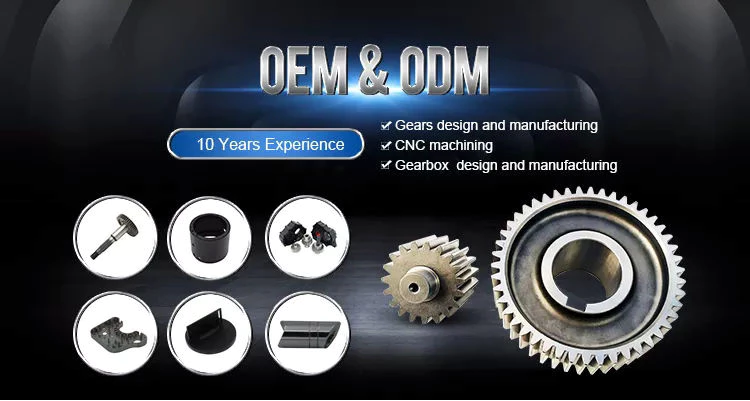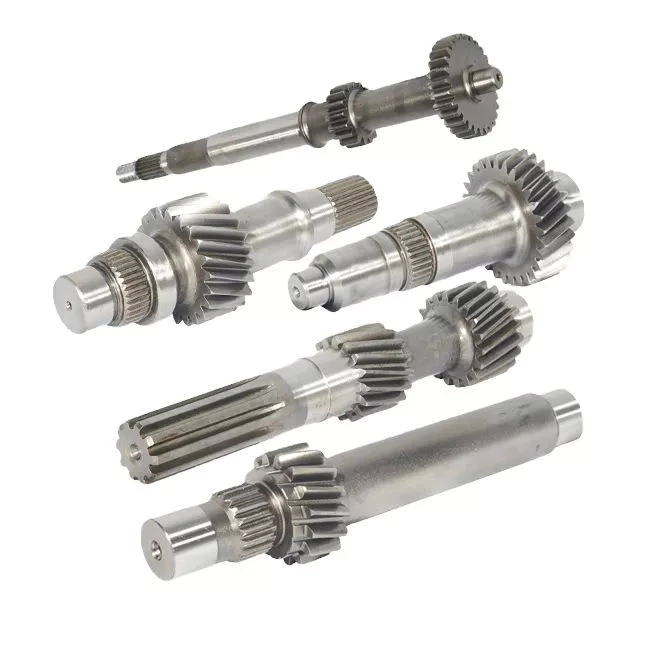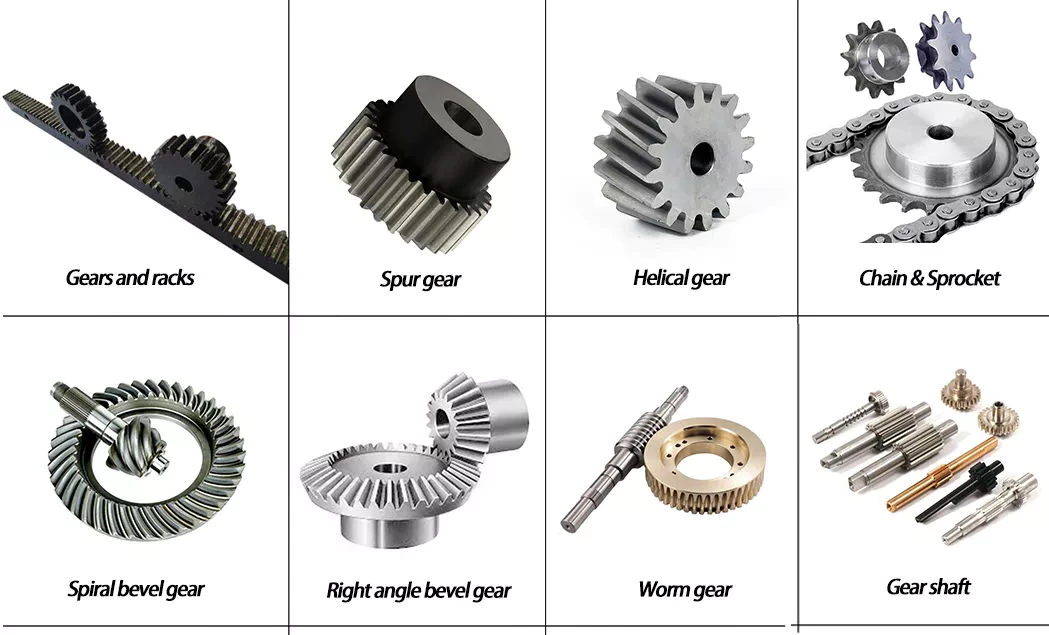Product Description
Product Description:
40hp 4wd China agriculture manufacturer price mini garden farm farming tractors for sale
This model 40hp 4wd tractor sells very well for its good quality and cheap price.
We export this model tractors most to Europe, America, Australia and Brizil and other countries, they are very popular in the market.
With beautiful appearance, this tractor is also multi-functional. It can match all kinds of farming implements.
Pictures:
Standard Equipments:
4L23 Engine,4 Cylinders,8+2 Gear Shift,With Single-Stage Clutch,Power Steering,Trailer outlet,
protection plate,Tires:6.0-16/9.5-24,hand throttle wire ,4x4 Wheel Drive,Front Ballast,Rear Ballast,
3-Point Linkage, Rear PTO 540/760, Color follow your need.
Options:
Cab,Canopy,Multi-Way Valve,Air Brake,Dual-Stage Clutch, 8+8 Shuttle Gear,11.2-24 Tires,
Tilting Draw Bar, Combination Instrument,Iron crate packing,
40hp 4wd Tractor Specs
| Model | CP404 | ||||
| Dimensions of Tractor(mm) | Length (to front ballast) | 3300 | |||
| Width | 1560 | ||||
| Height (to the exhaust vent) | 1896 | ||||
| Tread | Front Wheel | 1200 | |||
| Rear Wheel | 1200 | ||||
| Axle Base | 1690 | ||||
| Min.Ground Clearance | 300 | ||||
| Structure weight (kg) | 1300 | ||||
| Engine | Model | LD4L23 | |||
| Type | Vertical,4-Cylinder,Water Cooled and 4-stroke | ||||
| Rated Power(kw) | 29.4 | ||||
| Rated speed (r/min) | 2400 | ||||
| Fuel | Diesel | ||||
| Tires | Front Wheel | 6.00-16/6.5-16 | |||
| Rear Wheel | 9.5-24/11.2-24 | ||||
| Clutch | Single-stage clutch | ||||
| Steering | Hydraulic steering | ||||
| Transmission Type | 8+2 shift | ||||
| Suspension Type | 3-point links | ||||
| PTO | Type and Rev | Semi-independent Type 720r/m or 540/760r/m | |||
| Spline Size | I35 Rectangle Spline with 6 teeth | ||||
TZ-4 Front End Loader with 4 - in - 1 Bucket Specifications:
| Model | TZ-4 |
| Bucket capacity(m3) | 0.3 |
| Rated Load(Kg) | 360 |
| Overall dimensions(mm) | 4100×1600×1580 |
| Max. dump height(mm) | 2000 |
| Max. dump distance(mm) | 900 |
| Bucket rollback angle (degree) | 420 |
| Max. unloading angle (degree) | 470 |
| Max. scraping depth(mm) | 140 |
| Lifting time to pivot pin(s) | 7 |
| Descending time(s) | 3.5 |
| Recommended Tractor(hp) | 35-50 |
LW-7 Backhoe Specifications:
| Model | LW-7 |
| Bucket Capacity(m3) | 0.036 |
| Bucket Wide(mm) | 400 |
| Max.digging depth(mm) | 2150 |
| Max.digging Radius(mm) | 3360 |
| Max.digging Height(mm) | 3400 |
| Discharging Height(mm) | 1760 |
| Max.digging depth(2ft) Flat bottom(mm) | 2000 |
| Swing Angle(degree) | 140° |
| Bucket Rotation(degree) | 160° |
| Dipper stick CZPT Force(Kg) | 950 |
| Operating pressure(Mpa) | 16 |
Packaging & Delivery:
-4 units inside 1x40'fcl assembled,
-Delivery time: 30 days after receiving your deposit
Company Information:
Our service:
Certifications:
FAQ:
How to Calculate the Diameter of a Worm Gear

In this article, we will discuss the characteristics of the Duplex, Single-throated, and Undercut worm gears and the analysis of worm shaft deflection. Besides that, we will explore how the diameter of a worm gear is calculated. If you have any doubt about the function of a worm gear, you can refer to the table below. Also, keep in mind that a worm gear has several important parameters which determine its working.
Duplex worm gear
A duplex worm gear set is distinguished by its ability to maintain precise angles and high gear ratios. The backlash of the gearing can be readjusted several times. The axial position of the worm shaft can be determined by adjusting screws on the housing cover. This feature allows for low backlash engagement of the worm tooth pitch with the worm gear. This feature is especially beneficial when backlash is a critical factor when selecting gears.
The standard worm gear shaft requires less lubrication than its dual counterpart. Worm gears are difficult to lubricate because they are sliding rather than rotating. They also have fewer moving parts and fewer points of failure. The disadvantage of a worm gear is that you cannot reverse the direction of power due to friction between the worm and the wheel. Because of this, they are best used in machines that operate at low speeds.
Worm wheels have teeth that form a helix. This helix produces axial thrust forces, depending on the hand of the helix and the direction of rotation. To handle these forces, the worms should be mounted securely using dowel pins, step shafts, and dowel pins. To prevent the worm from shifting, the worm wheel axis must be aligned with the center of the worm wheel's face width.
The backlash of the CZPT duplex worm gear is adjustable. By shifting the worm axially, the section of the worm with the desired tooth thickness is in contact with the wheel. As a result, the backlash is adjustable. Worm gears are an excellent choice for rotary tables, high-precision reversing applications, and ultra-low-backlash gearboxes. Axial shift backlash is a major advantage of duplex worm gears, and this feature translates into a simple and fast assembly process.
When choosing a gear set, the size and lubrication process will be crucial. If you're not careful, you might end up with a damaged gear or 1 with improper backlash. Luckily, there are some simple ways to maintain the proper tooth contact and backlash of your worm gears, ensuring long-term reliability and performance. As with any gear set, proper lubrication will ensure your worm gears last for years to come.
Single-throated worm gear
Worm gears mesh by sliding and rolling motions, but sliding contact dominates at high reduction ratios. Worm gears' efficiency is limited by the friction and heat generated during sliding, so lubrication is necessary to maintain optimal efficiency. The worm and gear are usually made of dissimilar metals, such as phosphor-bronze or hardened steel. MC nylon, a synthetic engineering plastic, is often used for the shaft.
Worm gears are highly efficient in transmission of power and are adaptable to various types of machinery and devices. Their low output speed and high torque make them a popular choice for power transmission. A single-throated worm gear is easy to assemble and lock. A double-throated worm gear requires 2 shafts, 1 for each worm gear. Both styles are efficient in high-torque applications.
Worm gears are widely used in power transmission applications because of their low speed and compact design. A numerical model was developed to calculate the quasi-static load sharing between gears and mating surfaces. The influence coefficient method allows fast computing of the deformation of the gear surface and local contact of the mating surfaces. The resultant analysis shows that a single-throated worm gear can reduce the amount of energy required to drive an electric motor.
In addition to the wear caused by friction, a worm wheel can experience additional wear. Because the worm wheel is softer than the worm, most of the wear occurs on the wheel. In fact, the number of teeth on a worm wheel should not match its thread count. A single-throated worm gear shaft can increase the efficiency of a machine by as much as 35%. In addition, it can lower the cost of running.
A worm gear is used when the diametrical pitch of the worm wheel and worm gear are the same. If the diametrical pitch of both gears is the same, the 2 worms will mesh properly. In addition, the worm wheel and worm will be attached to each other with a set screw. This screw is inserted into the hub and then secured with a locknut.
Undercut worm gear
Undercut worm gears have a cylindrical shaft, and their teeth are shaped in an evolution-like pattern. Worms are made of a hardened cemented metal, 16MnCr5. The number of gear teeth is determined by the pressure angle at the zero gearing correction. The teeth are convex in normal and centre-line sections. The diameter of the worm is determined by the worm's tangential profile, d1. Undercut worm gears are used when the number of teeth in the cylinder is large, and when the shaft is rigid enough to resist excessive load.
The center-line distance of the worm gears is the distance from the worm centre to the outer diameter. This distance affects the worm's deflection and its safety. Enter a specific value for the bearing distance. Then, the software proposes a range of suitable solutions based on the number of teeth and the module. The table of solutions contains various options, and the selected variant is transferred to the main calculation.
A pressure-angle-angle-compensated worm can be manufactured using single-pointed lathe tools or end mills. The worm's diameter and depth are influenced by the cutter used. In addition, the diameter of the grinding wheel determines the profile of the worm. If the worm is cut too deep, it will result in undercutting. Despite the undercutting risk, the design of worm gearing is flexible and allows considerable freedom.
The reduction ratio of a worm gear is massive. With only a little effort, the worm gear can significantly reduce speed and torque. In contrast, conventional gear sets need to make multiple reductions to get the same reduction level. Worm gears also have several disadvantages. Worm gears can't reverse the direction of power because the friction between the worm and the wheel makes this impossible. The worm gear can't reverse the direction of power, but the worm moves from 1 direction to another.
The process of undercutting is closely related to the profile of the worm. The worm's profile will vary depending on the worm diameter, lead angle, and grinding wheel diameter. The worm's profile will change if the generating process has removed material from the tooth base. A small undercut reduces tooth strength and reduces contact. For smaller gears, a minimum of 14-1/2degPA gears should be used.
Analysis of worm shaft deflection
To analyze the worm shaft deflection, we first derived its maximum deflection value. The deflection is calculated using the Euler-Bernoulli method and Timoshenko shear deformation. Then, we calculated the moment of inertia and the area of the transverse section using CAD software. In our analysis, we used the results of the test to compare the resulting parameters with the theoretical ones.
We can use the resulting centre-line distance and worm gear tooth profiles to calculate the required worm deflection. Using these values, we can use the worm gear deflection analysis to ensure the correct bearing size and worm gear teeth. Once we have these values, we can transfer them to the main calculation. Then, we can calculate the worm deflection and its safety. Then, we enter the values into the appropriate tables, and the resulting solutions are automatically transferred into the main calculation. However, we have to keep in mind that the deflection value will not be considered safe if it is larger than the worm gear's outer diameter.
We use a four-stage process for investigating worm shaft deflection. We first apply the finite element method to compute the deflection and compare the simulation results with the experimentally tested worm shafts. Finally, we perform parameter studies with 15 worm gear toothings without considering the shaft geometry. This step is the first of 4 stages of the investigation. Once we have calculated the deflection, we can use the simulation results to determine the parameters needed to optimize the design.
Using a calculation system to calculate worm shaft deflection, we can determine the efficiency of worm gears. There are several parameters to optimize gearing efficiency, including material and geometry, and lubricant. In addition, we can reduce the bearing losses, which are caused by bearing failures. We can also identify the supporting method for the worm shafts in the options menu. The theoretical section provides further information.

